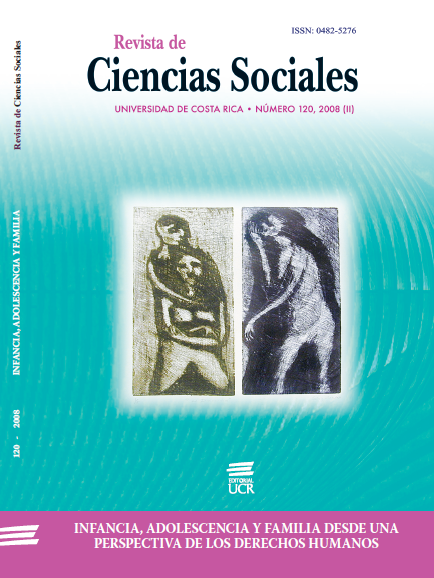Abstract
This article analyzes the content of the two instruments proposed by Costa Rica’s Adolescence Integral Attention Program (PAIA, for its Spanish acronym) to care for the health of adolescent women and men: the Tanner and the sifting tests.The main hypothesis is that the use of these instruments is a means to favor a sexual model which inhibits certain desires and actions by considering them as non healthy. Therefore, the PAIA, through the exercise of a public policy which claims to favor adolescent women and men, applies control and surveillance mechanisms aimed at producing a “healthy sexuality”, with a strong moral content.
##plugins.facebook.comentarios##
Downloads
Download data is not yet available.


